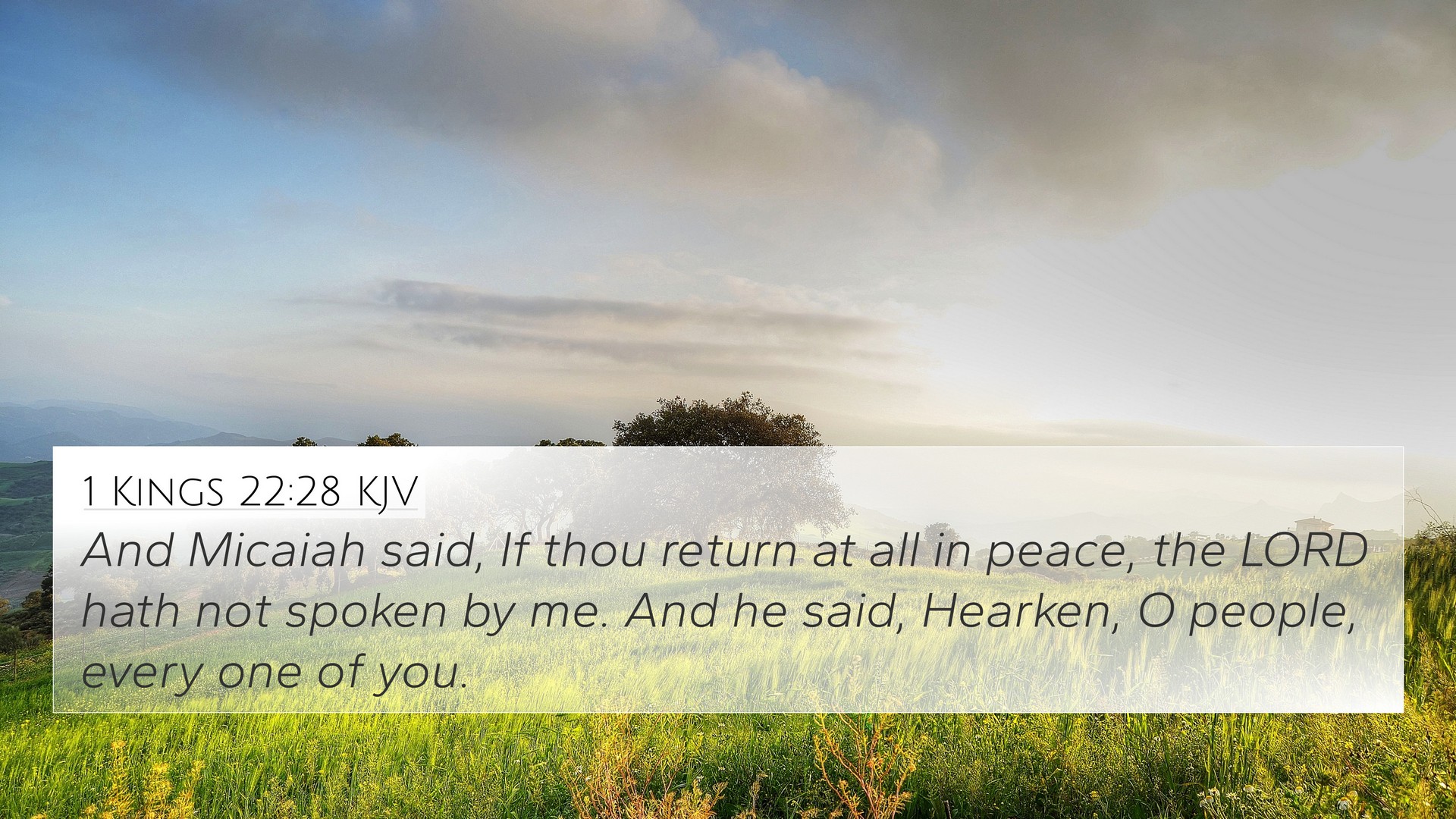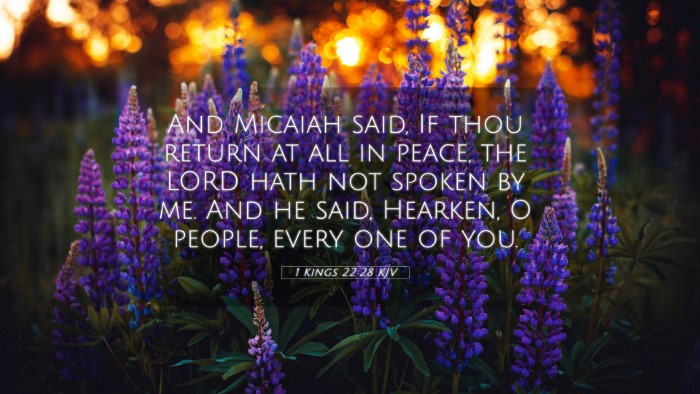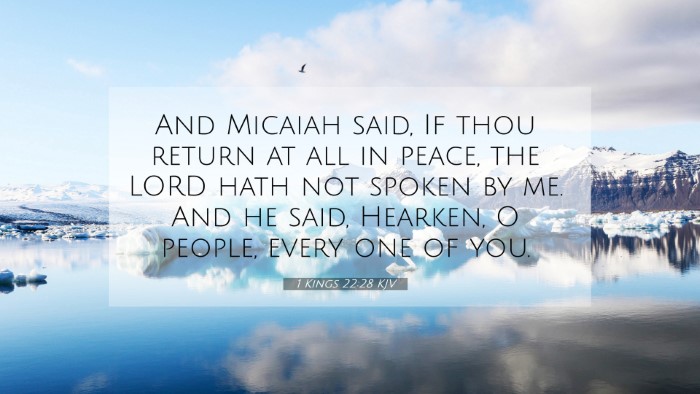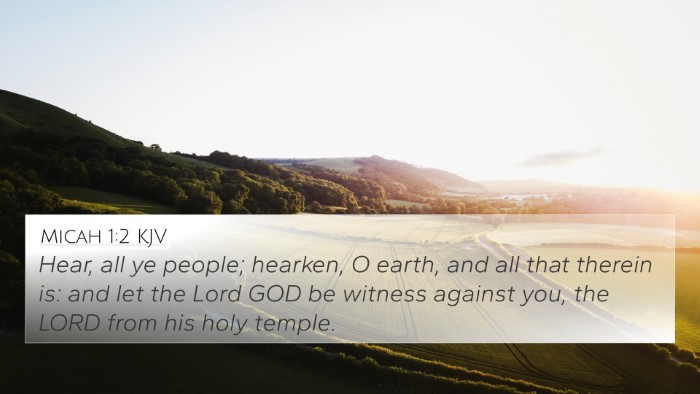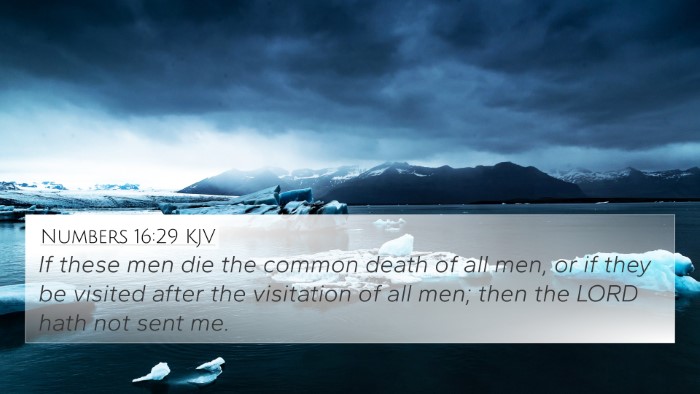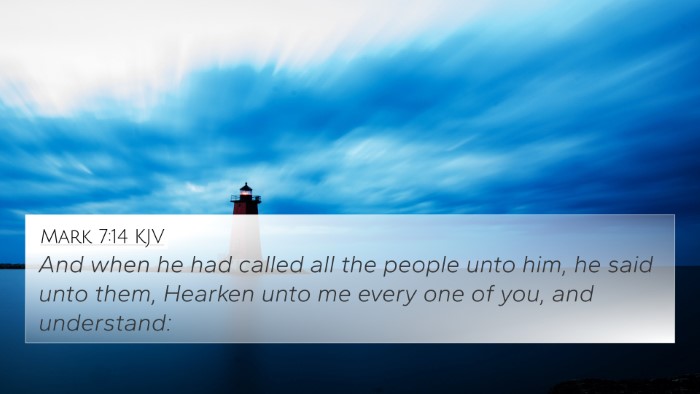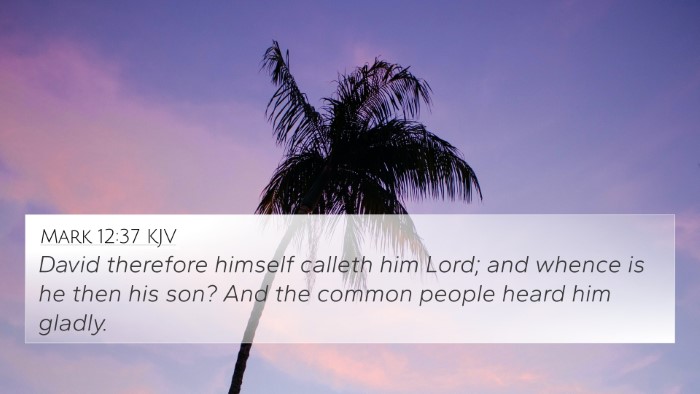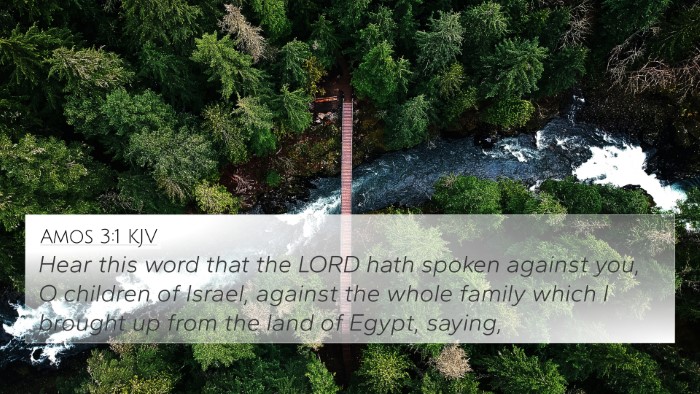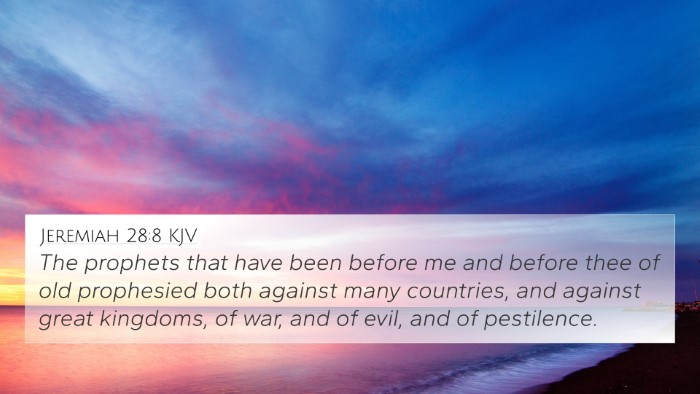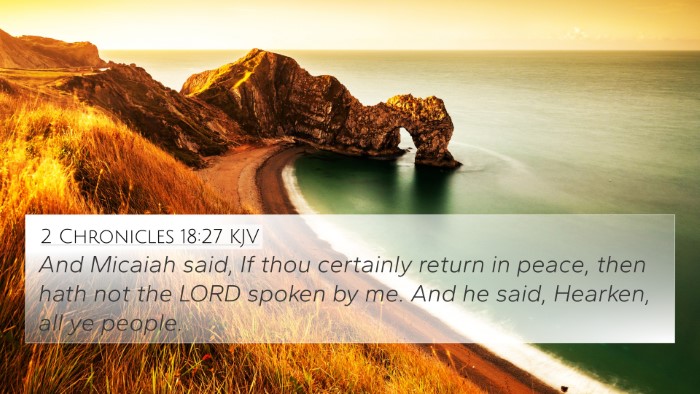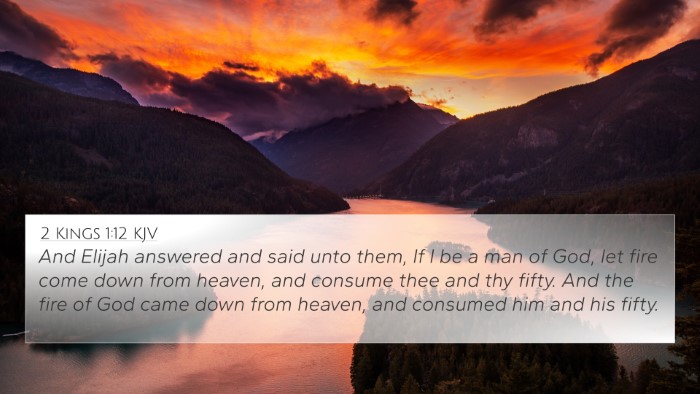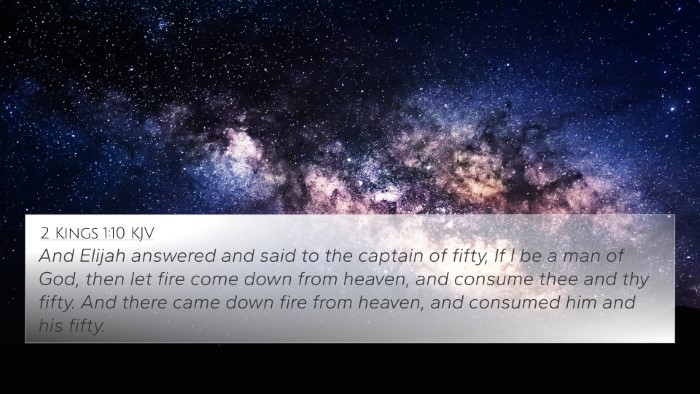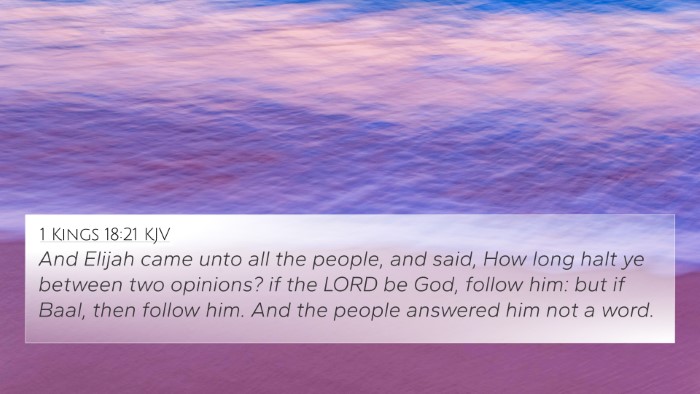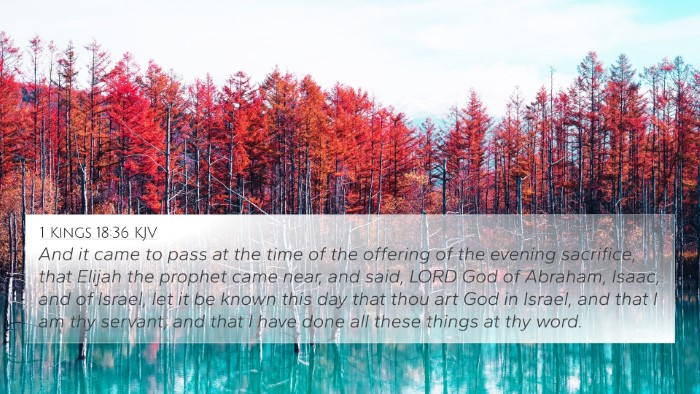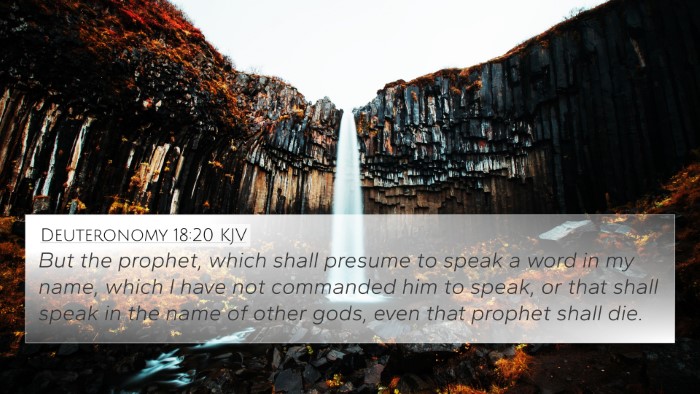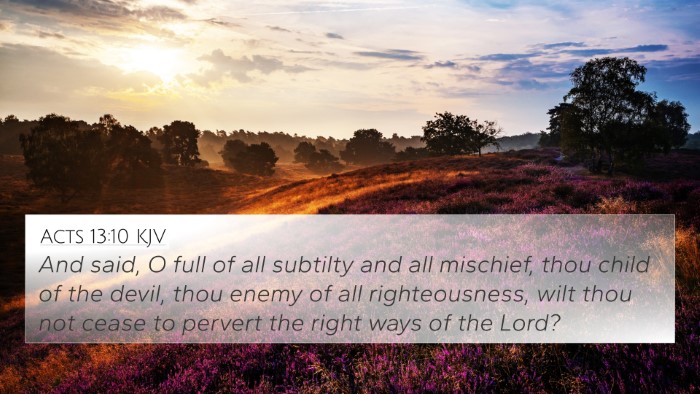Understanding 1 Kings 22:28
Bible Verse: 1 Kings 22:28 - "And Micaiah said, If you return in peace, the Lord has not spoken by me. And he said, Hear, all you people."
Summary and Interpretation
The verse from 1 Kings 22:28 finds Micaiah, a prophet, asserting the truth of God's message regarding the fate of King Ahab in battle. His confident declaration that the Lord has not spoken by him if Ahab returns alive emphasizes the gravity and certainty of the divine message he delivers.
Insights from Commentaries
- Matthew Henry: Henry emphasizes Micaiah's role as a faithful prophet amidst false prophecy. He highlights how Micaiah's message is not just personal opinion, but a direct word from God that carries significant weight.
- Albert Barnes: Barnes notes the context of this declaration, illustrating the confrontation of the prophets of Baal against the truth of God through Micaiah, thus showcasing the theme of God's sovereignty over human affairs.
- Adam Clarke: Clarke elaborates on the implications of Micaiah's statement, interpreting it as a warning to Ahab of the repercussions of ignoring God’s command, underscoring the importance of heeding divine instruction.
Key Themes in 1 Kings 22:28
This verse encapsulates several critical themes that resonate throughout the Bible:
- The Authority of Prophecy: Micaiah's emphatic assertion emphasizes the authority and authenticity of divine messages.
- The Consequences of Rebellion: Ahab's disregard for Micaiah's warning ultimately leads to his disastrous fate, illustrating the consequences of turning away from God's will.
- Truth against Opposition: Micaiah stands alone against numerous false prophets, demonstrating the challenge of maintaining truth in a world often swayed by popular opinion.
Bible Cross-References
To deepen our understanding, it's valuable to explore related scripture that presents connections between events, themes, and divine truths. Here are notable cross-references:
- 2 Chronicles 18:27: This verse shares the account of Micaiah's prophecy similarly, reinforcing his role as a genuine prophet.
- 1 Kings 22:8: This verse highlights King Ahab's preference for flattering and deceitful prophets versus the truthful words of Micaiah.
- Jeremiah 28:9: Reflects the idea of testing true prophecies by their fulfillment, echoing Micaiah's foreboding statement.
- 2 Peter 1:20-21: Stresses that prophecy comes from God, not human design, aligning with the divine authority Micaiah represents.
- Proverbs 1:24-26: Illustrates the dire consequences of ignoring God’s call, connecting with Micaiah's warning to Ahab.
- Isaiah 8:20: Encourages seeking knowledge from God's law and testimony, akin to Micaiah's fulfillment of God's message.
- Matthew 24:24: Highlights the prevalence of false prophets in the last days, akin to Ahab’s reliance on deceitful words.
Connections to Other Bible Verses
1 Kings 22:28 connects deeply with broader themes in scripture, allowing us to draw parallels and insights:
- Links between the Old and New Testament: The stand Micaiah takes reflects the prophetic voices in the New Testament that warn against deception (e.g., Matthew 7:15).
- Comparative Bible verse analysis: The contrast between Micaiah and the prophets of Baal mirrors the struggles faced by believers in maintaining truth amidst temptation (see Hebrews 4:12).
- Cross-referencing Psalms with New Testament teachings: Micaiah’s truth aligns with Psalm 119:105, affirming the Word of God as guiding light.
Thematic Bible Verse Connections
By exploring these connections, we uncover deeper insights into standing firm in faith:
- Faithfulness in Prophecy: The theme of fidelity in delivering God's message is reinforced across many prophets, as seen in Ezekiel 33:7-9.
- The Role of the Holy Spirit: The New Testament reveals that the Spirit guides believers to truth (John 16:13), resonating with Micaiah’s role of delivering God’s decree.
Conclusion
1 Kings 22:28 serves as a compelling reminder of the importance of discernment, faithfulness, and the consequences of ignoring the divine counsel God provides through his prophets. Understanding this verse and its connections enriches our study of scripture, providing tools for deeper engagement with the Bible.
